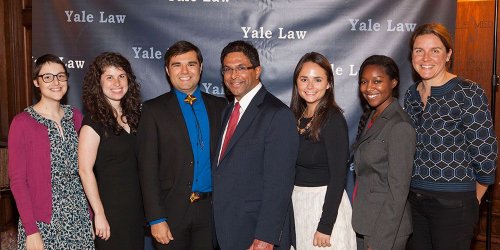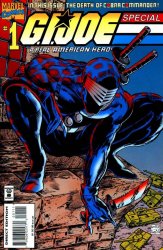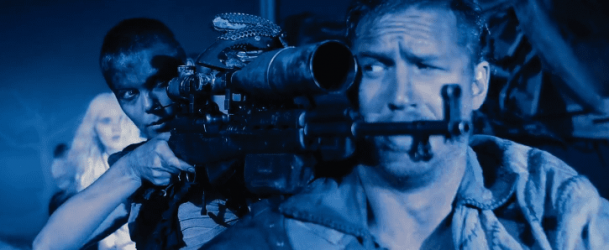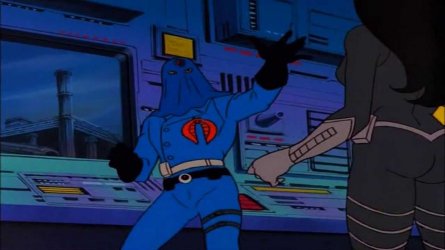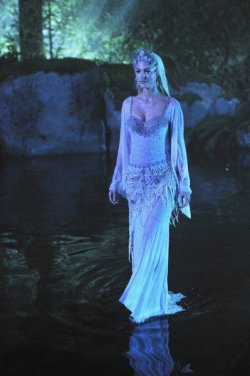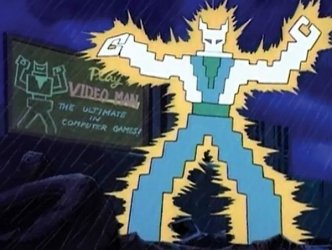- Sep 22, 2013
- 4,956
- 250
- 85
The Liar's Paradox is a principle in logic and linguistics which reveals the reflexive qualities of communication categories (or even a sort of grammatical reliability). This principle is revealed in a simple linguistic 'trick' (or game).
Here's how the game goes:
{Imagine a person writes down on paper the following two seemingly contradictory sentences - "The next statement is false. The previous statement is true." These two sentences can not be paired together, because the first statement nullifies the second while the second confounds the first and hence is also nullified.}
The Liar's Paradox reveals that communication is unreliable in a strict logical sense when considerations about comparability are too complicated to create consistent 'sets' of 'groups' of statements. Hence, language can be its own enemy!
Of course, we might 'extrapolate' on the quirky Liar's Paradox to understand/appreciate the problems arising in customs/etiquette in our real world which is indeed complicated by matters of trust, contracts, networking, and conditioning. For example, why do Ebonics-speaking African-Americans seem unintelligible to other ethnic groups who are not interested in recognizing their dialect as 'formal' (or intellectual)?
The Liar's Paradox is a terrific communications conundrum comedians can cite to contemplate the glaring contradictions in our flawed civilization...
====
"A Cambridge graduate named Stanley decided to study Medieval history in England and donned a blue-knight costume for Halloween one year. He walked around a Halloween party in his nifty blue-knight costume and when party-guests asked him why he was a blue-knight, he'd explain that he considered blue a color symbolic of virtue, calmness, coolness, and intelligence. Was Stanley insane or merely overly-analytical? Those who find Medieval history boring might believe Stanley was actually and only insane. Poor Stanley!"

"The Christian Bible states that at the End of Days (during the Apocalypse or 'Great Tribulation'), the ominous AntiChrist (the adversary of Jesus Christ and mankind) will ascend to Earth and seduce humanity away from civics with images/stories about civilization excesses such as The Wolf of Wall Street. It is conceivable that this 'AntiChrist' might in fact be some kind of folkloric 'swordsman' or 'soldier-of-fortune,' but those who'd seek to 'praise' such a figure might be construed as 'groupies' or 'fanboys' or even 'juvenile.' How then would the AntiChrist use beauty and cosmetics to promote his own public persona (or political appeal)? It would be quite a trick/challenge..."

"A criminally-insane female chauffeur nicknamed 'Livewire' working for a British aristocrat (driving his Rolls-Royce automobile) decided to betray her employer and murder him and then steal valuables from his mansion before fleeing to America where she began her life of urban crime (costumed as an electricity-critic performing pranks at power-plants and electric-grid stations across American cities). Livewire believed there was no reason to help the rich or the poor, since power-structures in civilization seemed to always cater to the haves and never ever to the have-nots. When Livewire was finally arrested and asked by the police why she did what she did, she explained that the only form of equity in the real world came in the form of charity which is never ever unpatronizing! Crime may not pay, but it certainly 'dissects'..."
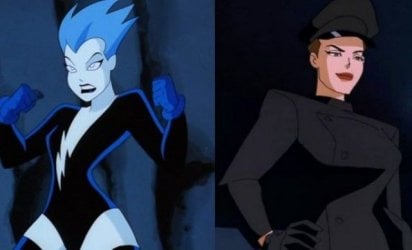
"American kids love playing video-games and the Mortal Kombat video-game series presents outlandish warriors arrayed in incredible stances for fatalistic fighting, combining martial arts with very unusual weapons and tactics. Two such characters are Sub-Zero (a ghoulish ninja who can manipulate freezing-cold winds) and Kitana (a warrior-princess with a penchant for throwing blue-colored bladed hand-fans). Sub-Zero and Kitana both symbolize martial-confidence, but Kitana is more graceful (which is why fans of Mortal Kombat appreciate her beauty and skill). So why is such a capitalism trophy (Mortal Kombat) considered to be eccentric? Don't we want our sons/kids to play with female warrior avatars to better appreciate women's rights? Shouldn't consumer products and toys reflect our political passions?"
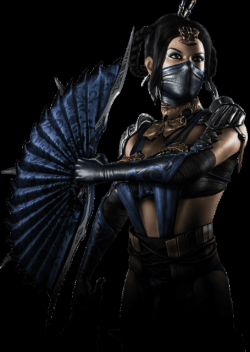
"A psychotic Ivy League graduate named Stan decided to start submitting anonymous editorials to The Washington Post, claiming that he was the real mastermind behind the 2013 Boston Marathon Bombing. Stan wore a blue-ski mask and took photos of himself in it with his Samsung smartphone and sent them to complement his editorials. In the editorials he submitted to The Post, Stan claimed he was in no way anti-American but merely a 'revolutionary radical' trying to expose America's obsession with media, competition, and capitalism-based vanities (e.g., NASCAR). Was Stan a true 'critic' of capitalism's flaws or merely a self-proclaimed revolutionary? Why does modern media create 'heresy gods'?"

GOD: I feel sorry for Stan...
SATAN: He's a psycho despite being well-educated!
GOD: Many might consider him to be like the Unabomber.
SATAN: No, the Unabomber was much more hermetic.
GOD: Stan was more outgoing but just as criminally-insane.
SATAN: The media has difficulty filtering out fluff from crime-stories.
GOD: Journalism is the new 'ark.'
SATAN: That's why we value network stabilizers.
GOD: After 9/11, Americans have been paranoid about globalization.
SATAN: Capitalism is easily criticized...
GOD: There should be a Cambridge course on 'Capitalism Totems.'
SATAN: There are numerous consumerism 'relics' (e.g., compact-discs).
GOD: The whole Napster 'controversy' revealed the flaws in capitalism.
SATAN: Supply-and-demand leaves little room for spiritualism.
GOD: 'Gangsta-rap' is popular in modern groups...
SATAN: It's an ethnic music genre catering to modernism fears.
GOD: Can communication save the world from cynicism?
SATAN: Only if programs such as The People's Court are considered jovial.
====


Here's how the game goes:
{Imagine a person writes down on paper the following two seemingly contradictory sentences - "The next statement is false. The previous statement is true." These two sentences can not be paired together, because the first statement nullifies the second while the second confounds the first and hence is also nullified.}
The Liar's Paradox reveals that communication is unreliable in a strict logical sense when considerations about comparability are too complicated to create consistent 'sets' of 'groups' of statements. Hence, language can be its own enemy!
Of course, we might 'extrapolate' on the quirky Liar's Paradox to understand/appreciate the problems arising in customs/etiquette in our real world which is indeed complicated by matters of trust, contracts, networking, and conditioning. For example, why do Ebonics-speaking African-Americans seem unintelligible to other ethnic groups who are not interested in recognizing their dialect as 'formal' (or intellectual)?
The Liar's Paradox is a terrific communications conundrum comedians can cite to contemplate the glaring contradictions in our flawed civilization...
====
"A Cambridge graduate named Stanley decided to study Medieval history in England and donned a blue-knight costume for Halloween one year. He walked around a Halloween party in his nifty blue-knight costume and when party-guests asked him why he was a blue-knight, he'd explain that he considered blue a color symbolic of virtue, calmness, coolness, and intelligence. Was Stanley insane or merely overly-analytical? Those who find Medieval history boring might believe Stanley was actually and only insane. Poor Stanley!"

"The Christian Bible states that at the End of Days (during the Apocalypse or 'Great Tribulation'), the ominous AntiChrist (the adversary of Jesus Christ and mankind) will ascend to Earth and seduce humanity away from civics with images/stories about civilization excesses such as The Wolf of Wall Street. It is conceivable that this 'AntiChrist' might in fact be some kind of folkloric 'swordsman' or 'soldier-of-fortune,' but those who'd seek to 'praise' such a figure might be construed as 'groupies' or 'fanboys' or even 'juvenile.' How then would the AntiChrist use beauty and cosmetics to promote his own public persona (or political appeal)? It would be quite a trick/challenge..."

"A criminally-insane female chauffeur nicknamed 'Livewire' working for a British aristocrat (driving his Rolls-Royce automobile) decided to betray her employer and murder him and then steal valuables from his mansion before fleeing to America where she began her life of urban crime (costumed as an electricity-critic performing pranks at power-plants and electric-grid stations across American cities). Livewire believed there was no reason to help the rich or the poor, since power-structures in civilization seemed to always cater to the haves and never ever to the have-nots. When Livewire was finally arrested and asked by the police why she did what she did, she explained that the only form of equity in the real world came in the form of charity which is never ever unpatronizing! Crime may not pay, but it certainly 'dissects'..."

"American kids love playing video-games and the Mortal Kombat video-game series presents outlandish warriors arrayed in incredible stances for fatalistic fighting, combining martial arts with very unusual weapons and tactics. Two such characters are Sub-Zero (a ghoulish ninja who can manipulate freezing-cold winds) and Kitana (a warrior-princess with a penchant for throwing blue-colored bladed hand-fans). Sub-Zero and Kitana both symbolize martial-confidence, but Kitana is more graceful (which is why fans of Mortal Kombat appreciate her beauty and skill). So why is such a capitalism trophy (Mortal Kombat) considered to be eccentric? Don't we want our sons/kids to play with female warrior avatars to better appreciate women's rights? Shouldn't consumer products and toys reflect our political passions?"

"A psychotic Ivy League graduate named Stan decided to start submitting anonymous editorials to The Washington Post, claiming that he was the real mastermind behind the 2013 Boston Marathon Bombing. Stan wore a blue-ski mask and took photos of himself in it with his Samsung smartphone and sent them to complement his editorials. In the editorials he submitted to The Post, Stan claimed he was in no way anti-American but merely a 'revolutionary radical' trying to expose America's obsession with media, competition, and capitalism-based vanities (e.g., NASCAR). Was Stan a true 'critic' of capitalism's flaws or merely a self-proclaimed revolutionary? Why does modern media create 'heresy gods'?"

GOD: I feel sorry for Stan...
SATAN: He's a psycho despite being well-educated!
GOD: Many might consider him to be like the Unabomber.
SATAN: No, the Unabomber was much more hermetic.
GOD: Stan was more outgoing but just as criminally-insane.
SATAN: The media has difficulty filtering out fluff from crime-stories.
GOD: Journalism is the new 'ark.'
SATAN: That's why we value network stabilizers.
GOD: After 9/11, Americans have been paranoid about globalization.
SATAN: Capitalism is easily criticized...
GOD: There should be a Cambridge course on 'Capitalism Totems.'
SATAN: There are numerous consumerism 'relics' (e.g., compact-discs).
GOD: The whole Napster 'controversy' revealed the flaws in capitalism.
SATAN: Supply-and-demand leaves little room for spiritualism.
GOD: 'Gangsta-rap' is popular in modern groups...
SATAN: It's an ethnic music genre catering to modernism fears.
GOD: Can communication save the world from cynicism?
SATAN: Only if programs such as The People's Court are considered jovial.
====



